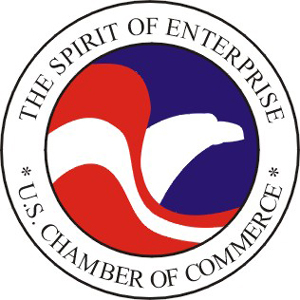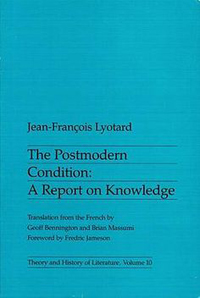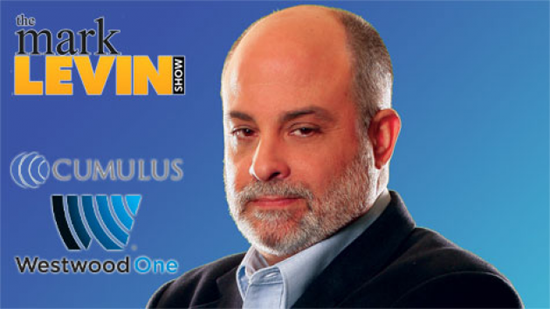How to get the most bang for our activist buck
A number of recent comments and posts have talked about how we can become more active. One of the things I’ve heard is that we need to hit the streets and that people here are more interested in blogging than in organizing.
I agree that we should be looking to do more, to run for office, to work with different campaigns, to look for opportunities to get involved, and think this conversation is great.
I also believe that the most important thing we can do is write. Here’s why.
Dan Ariely, in the The (Honest) Truth About Dishonesty writes that people are essentially driven by two opposing motivations:
On one hand, we want to view ourselves as honest, honorable people. We want to be able to look ourselves in the mirror and feel good about ourselves (psychologists call this ego motivation). On the other hand, we want to benefit from cheating and get as much money as possible (this is the standard financial motivation). How can we secure the benefits of cheating and at the same time still view ourselves as honest, wonderful people?
Contrary to what you might think, this leads people in general to be pretty good because they don’t want to be seen as immoral. Ariely concludes that very few people cheat a lot, but almost everyone cheats a little.
Also, in order to be seen as good and still cheat, people find ways to rationalize their behavior.
Ariely’s premise, in a nutshell, explains the entire purpose of corporate talk radio – to counter traditional morality and provide the rationalizations needed to allow corporations (and conservatives) to look good in any situation.
You might recognize a couple of their justifications:
- Let markets decide
- Acting selfishly leads to societal “good”
- Government should never “force” anyone to do anything
- If you are poor, you are lazy
Corporate special interest groups have figured out they can help people do what they want them to do by simply redefining the moral principles of our country.
This makes it easier for the 1% to justify getting richer and richer at the expense of the rest of the country. It also makes it easier to justify a lot of other really bad policies.
People often marvel at how much corporate special interest groups are able to accomplish and how difficult it is for people to accomplish anything through government. This has little to do with individual politicians. It also has less than we think it does to do with the two parties.
It has everything, on the other hand, to do with special interest groups like the U.S. Chamber of Commerce figuring out how to create change and spending a lot of money on the infrastructure needed to make it happen.
Here’s how the Mackinac Center (a corporate think tank) describes the process:
In our understanding, politicians typically don’t determine what is politically acceptable; more often they react to it and validate it. Generally speaking, policy change follows political change, which itself follows social change. The most durable policy changes are those that are undergirded by strong social movements.
This is why corporate special interest groups are fighting an idea fight and winning.
This is also why it’s so easy for politicians to enact tax cuts and so difficult for them to enact health care.
We tend to think politicians are going to change things. Typically, politicians pass legislation only at the point when things have already changed.
The process of change actually looks more like this: social change -> political change -> policy change.
What this means
We’re not thinking big enough if we are only thinking about electing Democratic politicians. They won’t be able to change anything once in office if the situation on the ground hasn’t changed for them.
This means we need to be winning people over with better ideas.
It’s important to be really clear about what I mean by ideas. When we say ideas and conservatives say ideas, we are usually talking about two completely different things. We tend to mean policy, they tend to mean morality.
When most of us think about ideas, we tend to think of things like “increasing the minimum wage” or “repealing Citizen’s United”. These aren’t the kind of ideas I’m talking about.
The ideas that I’m talking about are the ideas that will make increasing the minimum wage and repealing Citizen’s United possible.
Who framed George Lakoff?
What I’m referring to by ideas is more like values, or beliefs, or morality. Douglas Smith, in On Values and Value, writes:
Values are estimations not of worth but of worthwhileness. Unlike value, talk of values ignores money; it opines on timeless appraisals instead of transient ones. There is a deep backward- and forward-looking quality to values. If value is what makes us wealthy, values, we assume and regularly assert, are what makes us human.
His view is that framing is using language to explain something to someone in a way that makes sense to how this person already thinks. Framing is simply using the right language. This view goes something like this: We just need to use the right language or words. We just need to develop the right message.
Here’s Bill Maher delivering the common misinterpretation:
Democrats need to stop despairing about the gloomy midterm predictions, and realize there’s actually a glimmer of hope, and it has to do with suicide. Let me finish. For decades now, liberals pushed the issue of assisted suicide, and it got nowhere. Then, they started to call it ”aid in dying”, and its approval shot up 20 points and it’s now legal in 5 states. That’s the power of language.
I say this not to disparage Bill Maher, but rather to demonstrate that someone as smart as Bill Maher can make this mistake.
Don’t worry if you have this view. It’s pretty common. I used to think Lakoff was about messaging too.
The trick is that it is about language. But it’s not about language the way we think it’s about language. Recently, George Lakoff also spoke about this misconception:
So people never got that idea. They thought I was talking about language, about messaging. They thought that there were magic words, that if I gave the right words, immediately everybody would get it and be persuaded. They didn’t understand how any of this works. And I, coming into this, didn’t understand what the problem was. It took me a while to figure it out.
When I say “ideas,” I mean teaching values. So does George Lakoff.
Bill Maher said: “You win the word game, you win the issue.” This actually isn’t the case. One of the reasons I think we struggle so much is that we’re trying to “win the word game”.
But don’t believe me. Here’s how George Lakoff puts it:
People thought that when I was talking about framing that I was talking about words. This is what Frank Luntz keeps saying, “Words that Work.” The reason he can do that is that on the right, the think tanks figured out the frames before he came along.
In other words, you have to teach, develop, and cultivate value frames in order for the messages to work.
What do we believe in?
At this point, most people I know tend to get a little uncomfortable. The term values makes them think of things like rigidity, inflexibility, hegemony, and hierarchy. When we hear about values, we think about what conservatives mean by values – meaning ideology or strict religion. We, on the other hand, have been taught to challenge beliefs, not talk about what we believe.
Challenging beliefs is one of our beliefs. A core tenet of post-modernism is: art challenges power. Or as Lyotard said: “Simplifying to the extreme, I define postmodern as incredulity toward metanarratives.”
We tend to be very good at things like deconstruction because we’ve been taught how to do it. On the other hand, we haven’t had as much experience talking about our beliefs or even why it’s important to talk about them.
I believe it’s critical to talk about our beliefs because not only do they help us answer the question what comes next, but they also inspire and form the basis for why you would want to work with someone. What do we want to build? What do we want our world to look like?
What do we believe?
Would we be as uncomfortable with the term values if values looked like this:
- Trust
- Collaboration
- Service
- Pride
- Self consciousness
- Learning
- Self-organizing
- Wisdom
- Wholeness
- Purpose
- Empowerment
- Outcomes
- Teams
- Questioning
- Responsibility
- Courage
- Persistence
- Resilience
- Freedom
- Intelligence
- Compassion
- Community
- Humility
- Fun
This list, to me, represents Daily Kos.
I write at Daily Kos because I love the people, I feel it’s a valuable way to give back, and I feel developing community is one of the most important things we can do. I also learn a lot from interacting and collaborating with some very, very smart people.
It also represents some of the beliefs of many people I know across the political spectrum. When I talk about these things, I find it very easy to connect with the vast majority of people.
Now, think about the Democratic Party.
If you ask most people what they think about the Democratic Party, you’re likely to get very different answers. I know personally our local Democratic Party struggles with a couple of things. They’ve fallen on desperate times because corporate Ohio decided to put most of their eggs in a different basket. Instead of talking to people about this reality and asking for help, they seem to have decided they’re going to field corporate candidates.
I help them out where I can because I understand the significance. But it’s hard when I know what they’re doing and how they treat people. They want your vote, they don’t want your input. I believe they’re going to triangulate. And often, it seems they’re not looking at new ideas.
So how can we change this?
How to get more bang for our activist buck
Think about the following question:
How would you feel about working for the two different organizations I described?
Is it any wonder the Democratic Party is struggling while Daily Kos is growing?
People like to write and hang out at Daily Kos because Daily Kos has created a culture where people share the first set of beliefs and are able to act on them in a positive way.
Of course, we may also do it because every now and then one of our posts gets promoted and this is also cool. But I think most of us would be here anyways even if this didn’t happen. Some of my favorite posts have been ones where I just had an interesting conversation with someone or I learned something new about someone.
This is the importance of values. Once you see you share the same values with someone, it’s much easier to have conversations with them and work with them towards shared goals.
The trouble with values is you can’t just “say” them. You have to live them. If you just pay lip service to them, people will know.
If we want our politicians to do better things
Politicians tend to do things when the situation on the ground has already changed. This is why corporate special interest groups have invested so much money in changing peoples’ values. AM radio, in many ways, is nothing more than DJ personae preaching a radical set of values 24/7. The same thing with channels like FoxNews. Not only that but these special interest groups created the idea that news equals nothing more than members of both sides presenting their messaging. The corporate special interest group side is always extremely well-represented.
They do this in order to justify things like massive wealth inequality. Within the “morality” preached from these 500,000 megawatt towers, nearly any selfish action is justifiable. This is a far cry from both traditional Judeo-Christian morality and Enlightenment morality. It is Ayn Rand broadcast across a massively funded corporate special interest group communication network. The goal is to establish new, radical values in order to justify replacing our democracy with something that looks more like a front group for certain corporate special interests like the U.S. Chamber of Commerce.
If we want values like the ones I described above to survive, we need a way to communicate and teach these values.
This is one of the great things the community at Daily Kos does that I don’t see many other organizations even attempting to do.
What I see with activists in my city is a group of many, many people all divided working on different specific policies and prescriptions and focusing solely on their small piece of turf.
Even when they succeed, the goal posts are being moved underneath their feet.
What corporate special interest groups managed to do was organize the business community around a shared set of values. Forget for a second how much we disagree with these values. It is an impressive feat of organization that so many disparate interests have come together to communicate and teach corporate values.
We, the people who believe in collaboration and working together on the other hand, seem divided on a thousand fronts, rushing from issue to issue.
They succeed because they’ve managed to define an economic fight that encompasses all of the other objectives they want to accomplish. They’ve managed to convince many people that the way to a greater good is simply to act selfishly.
I believe if we want to get the most bang for our activist dollar, we need to communicate and teach our values.
Values like the ones above that you can categorize mostly under the following five categories:
- Democracy
- Freedom
- Mutual responsibility (community)
- Equality
- And, a working economy (or economy for everyone)
We need a story that says we succeed together. We fail when we act alone.
Contrary to the view of framing as messaging, the specific wording is not as important as the idea of teaching these values to others. If these frames are in place, the folks who work with the politicians will figure out specific messages for each campaign. The best way to teach these ideas is simple – talk about stories from your life.
Telling people what to do never convinced anyone. But talking about what these things mean to you and why is tremendously powerful.
If each of us worked within our circles to help people speak up and out more about our values and each of us worked to convince organizations that the way to win on all fronts is to win on ideas, we could easily put together a communications network capable of rivaling corporate special interest groups.
A distributive strategy
In the past, we relied on leaders and individual writers in the media to talk about our values. Whether we like it or not, those days are gone. The last thing the “liberal media” is going to talk about is liberal values. Unless some philanthropists invest in a better media, we’re going to get a steady diet of corporate values from traditional outlets.
We could lament this development or we could visualize things a bit differently. Imagine you write for 20 people and imagine those people influence 20 people etc.
- 1st round = 20 people
- 2nd round = 400 people
- 3rd round = 8,000 people
- 4th round = 160,000 people
- 5th round = 3.2 million people
- 6th round = 64 million people
You might think it sounds tough to get 20 people you know to be more active and influence and share with their friends. It’s much easier if you ask them to write about their experiences and what they believe and what they want the world to look like. After getting people to write, getting them to share is easy.
If enough people do this, very quickly we have an extremely powerful distributive communications network. Instead of a few voices of authority (like we had in the past), we now have millions.
This is why I like to encourage people to write.
I also encourage them to write about their values. Don’t get me wrong, we need the outrage articles. People act on outrage.
However, we also need stories about what we stand for and believe in. Traditional values are being erased and replaced with stories about “value” – the endless good we’ll supposedly enjoy if we just give up all values.
Thoughts?
—
 |
David Akadjian is the author of The Little Book of Revolution: A Distributive Strategy for Democracy. Follow @akadjian |














